Thomas E. Ricks's Blog, page 61
February 20, 2014
Gourley's Strachan Files (III): Strategy is the first casualty of poor civ-mil relations
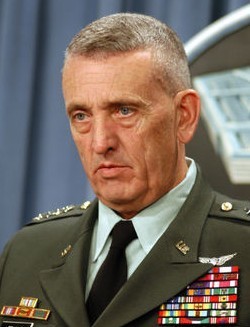
By Jim Gourley
Best Defense chief military culture correspondent
The Direction
of War has an entire
chapter on civil-military relations, in which Sir Hew Strachan discusses how
governments and their militaries ought to (but largely don't) interact
according to Clausewitz. But throughout the work he observes some interesting
dynamics about how a military's relationship with civilian society, as well as
government, change in war. The bottom line is that things go badly at home when
they don't go according to plan on the battlefield, and significantly worse
when you go to the battlefield without a plan in the first place.
"A new model of
civil-military relations is required, and it has to reflect the changing
character of war," he writes. He emphasizes four factors of change:
1. Today's wars are
"de facto wars," compared to the officially-declared kind that
dominated Clausewitz's era.
2. Conflicts are
"of low intensity, but are often persistent, continuous and
simultaneous."
3. Countries now
fight with all-volunteer forces. Strachan observes the same consequences often
discussed on this blog: separate societies, the question of civilians being able
to relate to their servicemembers, etc.
4. "Society's
image of war is mediated by the press."
But the military
creates its own share of problems with its cultural attitude (or rather, its
belief that it has a cultural attitude) of staying out of politics. "If
the media is such a powerful tool in the debates on the use of military force,
the armed forces need to cease behaving like rabbits caught in the headlights
of an oncoming vehicle. They should not react as though they honestly believe
that apolitical behaviour is the corollary of professionalism. Such responses
reflect the power of the Huntingtonian norm, not of reality. The US armed
forces lobby on Capitol Hill in a way which would affront British liberal
norms, and the link between success in high command and the presidency runs
through every 'existential' war the United States has fought," going all
the way from Washington to Ike.
The consequences of
keeping mum in the interest of being apolitical, according to Strachan, are
numerous. Instead of being informed by serving generals, we get retirees who
make stuff up whenever they don't know the real answer. If a serving senior
officer does speak, the public immediately assumes it is to endorse the
government's view, not to provide an impartial professional commentary. Nor do
military members who speak to the press out of turn help things. Strachan
claims that they are "destabilising" and unhelpful to a public dialogue
because they create too much controversy.
He goes on to make
one of the most forceful arguments of the entire book: "We cannot expect a
sophisticated and informed discussion on the uses of military force, when the
information in the public domain is partial, in both senses of the word. For
too long, at least fifty years, we have started this debate with the answer,
not the question. We have tended to assume that the danger is a military coup
d'état, when the real danger for western democracies today is the failure to
develop coherent strategy. A revised system of civil-military relations would
re-empower the constitutional controls on the executive, help reintegrate armed
forces and society, and -- most important of all -- enable an approach to
strategy appropriate to the norms of liberal democratic government."
Dunkirk 1940: A triumph of the British love of lining up and keeping one's place?
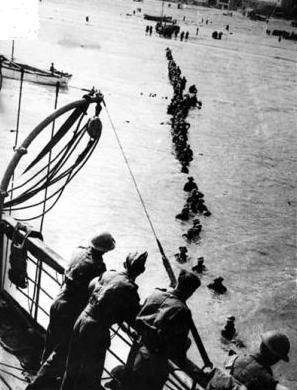
I know of
no other culture that so values lining up and waiting one's turn as much as the
British do. Why, I don't know. They even have a revered term for it: "queuing."
I thought
about this the other day when reading a history of the evacuation of about
365,000 British and French troops from in and around Dunkirk, France, in late May
and early June 1940. The British today remember this as a remarkable turning
point in the war. Perhaps so. And those who held off the Germans during
the evacuation of course deserve a salute. But for most of the soldiers
involved, the task was to line up properly and wait one's turn. Would any
other nation so glorify such an event? It resonates in British culture like the
Alamo does in ours.
Kitfield: The era of militarism may be over
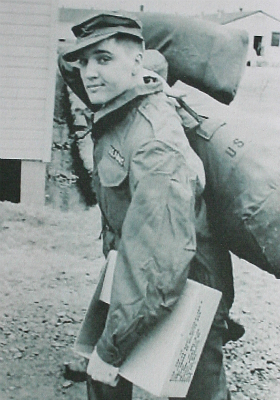
James
Kitfield, one of the best defense reporters in the biz, just moved his stand. Here is his first volley
from his new home.
February 19, 2014
I am not happy with the term 'disruptive defense' but at the same time I hope we're on the eve of some creative destruction
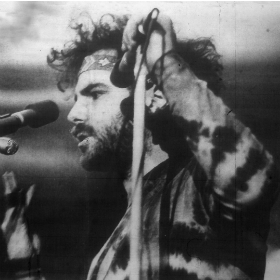
I like some of the
people using the term "disruptive defense," but I don't think I like the term
itself. I know what they mean by disruptive technologies, but the term standing alone makes it seem like
disrupting is an end in itself. I don't care if something is disruptive, I care
if it makes our military more effective and our society better and safer. Some
of those changes will be disruptive, others will not.
Still, I am
sympathetic. The more I look at today's defense establishment, the more I think
it is mired in the industrial age, especially its personnel policies -- which I
believe are at the core of how our military operates and adapts, or doesn't. If
we are to continue as a topmost military power, those policies are going to
have to be overhauled entirely. And not by the people currently in charge of
them.
We also probably
need to see the defense industrial base go the way of the trolley. In five
years, Amazon and Google probably are going to know more about drones and robots than anyone in
the military. So yes, I hope we are on the eve of creative destruction. Disrupt
away, fellas.
A few words in defense of the Wisconsin National Guard funeral honor guard
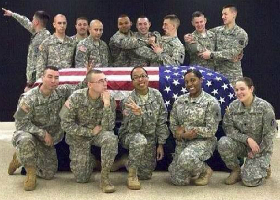
It is easy
to be shocked by troops seeming to make
fun of the ceremonies honoring dead soldiers. But I suspect that this
type of humor actually is a form of psychological cushioning. As I recall,
doctors dealing with trauma on a daily basis often have private humor and terms
themselves, partly to enable themselves to work in an environment of pain and
loss. I also can remember how, when I was a reporter, I quickly become
accustomed to standing over a dead body with Miami homicide detectives
("smoker," "four-waller," and "potato mouth" were some of their terms of art to
describe corpses) and discussing where to get dinner.
A session on how the Marine Corps might do better at retaining good young officers

By Chris Mondloch
Best Defense guest
columnist
Wrapping
up 13 years of fighting in Afghanistan this year, the U.S. military will surely
face many challenges in the near future. Transitioning to a peacetime force,
large-scale personnel cuts, advancing technologies, and the growing debate over
women's role in combat all signify the ever-changing nature of the armed
forces. On a recent morning, the Reserve Officers Association turned to an
important yet often overlooked group -- company-grade officers -- to discuss
their perspective on the emerging trends and challenges facing the military
today.
The
discussion panel consisted of three Marine Corps officers who recently separated
from the Corps as either first lieutenants or captains. All three had combat
experience in Afghanistan and enjoyed serving their country -- yet decided
against making a career out of the Marines. One main area of concern among the
three men is the military's failure to retain competent officers after their
initial service obligations are filled. The notion that certain officers are
"too educated" or "too good" to remain in the military -- the Marine Corps,
specifically -- is a problem, according to panelist Ben Luxenberg.
Over
all else, the Marine Corps values leadership and decisiveness in its officers. Luxenberg
said that those officers who proved to be competent leaders who could "make the
trains run on time" were targeted for retention over top intellectual achievers
after their first term of service. The lack of innovative thinkers will
continue to create problems by perpetuating the notion that the military is not
a place for intellectually-minded individuals. According to Luxenberg, the term
"the best and the brightest," often used to describe the corps of young Marine
officers, should actually be split: "the best or the brightest."
Joe
Tate, an infantry officer with two deployments to Helmand Province, said he
benefitted greatly from his Marine Corps leadership training but, after
multiple combat tours and the additional rigors of the infantry, he felt the
need to transition out of the military. One way to retain and revitalize young
officers is through education and diversification. Ensuring that four- or
five-year officers are afforded the opportunity to seek higher education and
diversify their military resumes could offset rigorous initial tours of duty.
Andrew
Tuttle, an intelligence officer who has been doing management consulting since
he left the Marines in 2011, called for the military to overhaul its personnel
management system. According to Tuttle, we live in the most fluid labor market
ever, and the military needs to adapt. Instead of advancing along with the
private sector, the military's management techniques remain archaic. For
example, officers are often assigned to new duties based on numbers and
availability, without taking individual talents into account.
There
is no doubt that junior officers, being the future leaders of the U.S.
military, are an important group to target for policymakers looking to improve
the administration of the armed forces at this critical time. Retaining the
"best and the brightest" -- whether they are cut from the leadership cloth or
destined to become innovative staff officers -- is essential to ensuring the
smooth operation of a peacetime military.
As
a Marine myself, I agree that retention is a problem. On both the officer and
enlisted side, I have seen too many intellectually-minded men and women who
felt like the Marine Corps was not the right place for them when they finished
their first term. Instead, less-cerebral "type-A" individuals have thrived and
renewed their contracts, creating a disparity between bright junior Marines and
their intellectually deficient senior leadership. Although I would say this is
more of an issue on the enlisted side, I think it is of vital importance for
the Marine Corps, and the military as a whole, to reverse this trend of the
true "best and brightest" officers moving on after their first four or five
years, because this is a perpetuating cycle. I can attest to the major
challenges that the military faces today. We are going to need a combination of
strong commanders and bright young staff officers to navigate through the
changes that lie ahead.
Chris Mondloch served
as an intelligence analyst for the U.S. Marine Corps for five years, including
a deployment to Helmand Province, Afghanistan in 2012. He recently received his
Bachelor's Degree from George Mason University.
February 18, 2014
The Future of War essays (no. 7): Use the current generation’s knowledge of war to robotize a lot of what the military does

By Bill
Gawne
Best
Defense future of war entrant
Current trends are moving
us toward increased automation of our battlefield assets and increased size of
our combatant staffs. These two things mean that we've gotten very good at
executing Plan A, even as it becomes harder for us to cut over to Plan B. I'd
have thought that the various J-3 and J-4 officers would have learned by now to
implement changes of plans quickly, but I've seen no evidence that it's happening.
It would be a good idea
for DARPA to look into artificial intelligence solutions to staff officer
duties. We've put a lot of money and effort into developing AI systems that
replace the warfighter at the tip of the spear. Why not develop AI solutions
that implement the broad knowledge and management skills of staff officers too?
Industry has been moving toward the replacement of complicated service
management functions by AIs in recent years.
Before the institutional
knowledge of our best logisticians and operational planners is lost to
attrition via retirement and downsizing, let's capture it in decision-capable
automated processes that don't get tired, don't get hungry, and don't suffer
from bad judgment brought on by accumulated stress. (And don't go out drinking
and looking for ‘entertainment' when on liberty.)
Bill
Gawne is a retired Marine master sergeant (1972-1995) whose last duty
assignment was Marine Corps Studies and Analysis at Quantico, where he worked
as an operations analyst. He is now employed by a contractor for the NASA
Goddard Spaceflight Center, where he works on automating mission operations for
NASA's science missions. This represents his own opinions, which are not
necessarily those of anyone he ever worked for.
Tom
note: Here's a critique of
some of the Future of
War
stuff that has run here. There are now a total of 19 essays set to run. I may
cut off the entries when we get to 25 acceptable entrants. What think you?
Meantime, if you have one, here is
how to send them
.
Mattis for Marine commandant (and one captain's account of Amos being booed)

Given the problems facing the Marine Corps, it seems
to me that a smart move would be for President Obama to make James Mattis the
Marine commandant. He has only been retired for a short while, and he has an
impeccable reputation for integrity. The move would be both popular with Marines
and the right thing. That's a solid combination. And it would be the right
thing to do by Mattis, too.
Meanwhile, a recently resigned Marine captain writes
something that I find stunning about a service that prides itself on its discipline
and cohesion:
I've
been watching my former Commandant's troubles with a combination of shame and
grotesque humor. I have nothing groundbreaking to share, just an anecdote. At
my last Marine Corps ball, this past November, after returning from one of the
last full-battalion deployments to Helmand, I watched (again with half frown,
half stupid grin) 900 Marines and some of their dates actually boo Gen. Amos
when he appeared in his annual video.... this is just one story, but I'd have
to guess he's the first commandant to be mocked and hated by his own Marines to
such a degree. I resigned my commission because of my complete lack of faith in
the Corps' administrative processes, and I definitely will not be disappointed
when Gen. Amos departs, but at this point it's all just gotten embarrassing.
Gourley's Strachan Files (II): Was Colin Powell the worst general of the GWOT?
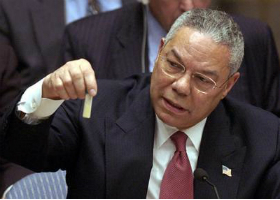
By Jim Gourley
Best Defense chief military culture correspondent
One of the things
that struck me most about Hew Strachan's The Direction
of War was his assessment
of individual cases of strategic short-sightedness. Tom has already mentioned that Sir Hew took a pretty hard swipe at Samuel Huntington. But his
remarks about Colin Powell seemed more remarkable compared to how he treated
other American generals. He's pretty defensive of guys who have somewhat become
poster boys for screw-ups in generalship. Take these snippets from Strachan
dealing with Stanley McChrystal running away with Rolling Stone:
Of the belief that
the interview had challenged civilian authority over the military: "But
McChrystal had not set out to challenge that norm. This was a cock-up, not a
conspiracy. His dignified response, and his refusal to try to justify or
explain away the remarks attributed to him, confirmed his disciplined
acceptance of his own constitutional position. What he had done was something
rather different: he and his colleagues had vented their frustration at the
lack of clear political guidance within which McChrystal's own operational
concepts were meant to sit."
And then later:
"In 1952, when General Douglas MacArthur was recalled by President Harry
Truman, his sin was to have called for a change in strategy; by contrast
McChrystal just wanted a strategy."
Strachan also gives
a nice get-out-of-jail card to General Ricardo Sanchez for shutting the
civilian side of the government out of his phase four planning: "Once in
Iraq, Ambassador Paul Bremer said that his job was policy and General Ricardo
Sanchez's was the war, and that each should stick to his own sphere. So he
should not have been surprised when he, not unreasonably, asked Sanchez for
details of his tactical plans, and Sanchez responded, 'Stop right there, sir. I
am not going to give you the details of our tactical plan.'"
And even though
Strachan does call Tommy Franks naive and arrogant, he still finds cause for
leniency in the context of his planning environment. Strachan contends that
Washington had become so obsessed with keeping the military out of politics
that it also insisted on keeping political leadership out of military affairs.
"Keep Washington focused on policy and strategy. Leave me the hell alone
to run the war," he quotes Franks in speaking to Deputy Secretary of
Defense Paul Wolfowitz. To a great extent, he argues, Franks was a product of
the system, and the system went on to fail the man it created.
But it's Colin
Powell that Strachan never lets off the hook for creating the system in the
first place. No accomplices or extenuating circumstances are ever introduced in
his case. Strachan even rips him for misreading Clausewitz on the "trinity
of war." While he specifies that most of Powell's ideas manifested
themselves in Caspar Weinberger's eponymous doctrine, he more frequently refers
to it as the Powell doctrine.
The indictment
reads:
Thanks to Colin
Powell and his intellectual legacy, American military thought at the dawn of
the new millennium had become quite explicit about its separation from the
context of policy. Smarting from the effects of the Vietnam War on the US army,
Powell said that US forces should be used to achieve clear political
objectives, which should be determined in advance, and that they should be
deployed with overwhelming military force to achieve a quick victory: their
'exit strategy' should be clear.
The Powell doctrine
collapsed when it confronted the practice of war in the first decade of the
twenty-first century. Today Powell might say that the results of not using
overwhelming force and not having a clear 'exit strategy' are evident for all
to see. But in advocating a clear demarcation between strategy and policy, he
prevented the engagement of one with the other, and his legacy survives in
principles to which many in the United States Army still adhere. What the Iraq
War also showed, and a point that Powell also failed to address ... was the
fact that it would be the enemy -- more than the American government -- that
would be trying to prevent the United States army from achieving quick victory.
Classical strategy, and Clausewitz in particular, recognised that the relationship
between strategy and policy was central, even if contested. Powell and his
heirs worked hard to resolve that contest by divorcing policy from operational
thought.
February 17, 2014
Marine officer: The situation with the commandant is worse than you think

A Marine officer wrote to me about the situation with
General Amos. "It's near open insubordination,"
he told me. "He has lost control, and Ray Mabus either is clueless or doesn't give a f*** about the soul
of the Marine Corps." Some very rough stuff on Facebook about him, too. On
the other hand, here are some heartfelt words of support for Amos.
Support him or not, General Amos does seem to me the most
troubled commandant since P.X. Kelley back in the mid and late 1980s, with the
Ollie North mess, the Marine embassy guards in Moscow scandal, and most of all,
the Beirut barracks bombing. I just hope that they pick a good general to
succeed him. But I am told there is little indication that either Mabus, or
Amos and the yes men around him, is going in that direction.
In what appears to be related news, I am seeing smoke
signals on the horizon west of I-95 indicating new troubles at the Basic School. Anyone wanna enlighten me on why
the captains are so unhappy there, according to the recent survey on command climate? My e-mail address is right at the
bottom of this link. You probably don't wanna send the info from your office
computer, OK?
Thomas E. Ricks's Blog
- Thomas E. Ricks's profile
- 437 followers



